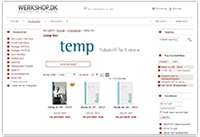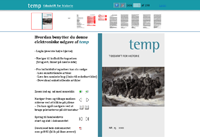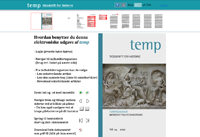ABSTRACT [DK]
Kristine Kjærsgaard
Retsstatsprincipet i FN’s Verdensmål 16 Holdninger, konflikter og kompromis
Artiklen analyserer retsstatsprincippets status i FN’s verdensmål 16 og integration i den internationale bæredygtighedsdagsorden. Konfliktende holdninger mellem veslige liberale demokratier, autokratiske styrer og udviklingslande belyses. Vestlige lande ønskede, at retsstatsprincippet skulle være et selvstændigt verdensmål gældende nationalt og internationalt. Liberale frihedsrettigheder skulle stå stærkt. Autokratiske stater mente, at retsstatsprincippet ikke hørte til i verdensmålene. I hvert fald skulle national suverænitet over princippet bevares. Det globale Syd delte dette synspunkt, men mente dog, at retsstatsprincippet kunne have en international dimension i form af ligelig indflydelse i internationale organisationer og finansielle institutioner. Uenigheden mellem staterne resulterede i et kompromis. Retsstatsprincippet blev et delmål i stedet for et selvstændigt mål. Frie medier blev til adgang til information. Ansvarlige regeringer blev først skrevet ud af verdensmål 16, men i den sidste fase af forhandlingerne skrevet ind igen. Fra et vestligt synspunkt blev retsstatsprincippet fastholdt, men i en noget udvandet form. De autokratiske stater måtte acceptere, at det overhovedet kom med. På den ene side fik retsstatsprincippet en modificeret status. På den anden side blev det, i kraft af at blive integreret i verdensmålene og hermed for alvor koblet til kernebegrebet bæredygtighed, en styrket international status.
ABSTRACT [UK]
Kristine Kjærsgaard
The Rule of Law in UN SDG 16: Positions, Conflicts, and Compromise
This article analyses the status of the principle of the rule of law in UN Sustainable Development Goal 16 and in the international agenda of sustainability. Conflicting positions between Western liberal democracies, autocratic states, and the Global South are presented. Liberal democracies advocated a strong principle of the rule of law. Autocratic states believed that the rule of law did not belong in the SDGs. The rule of law ought to be subject to national sovereignty. The Global South shared this position but were open to an international dimension of the rule of law in the form of equality in representation in international organisations and financial institutions. The conflicting positions led to a compromise. The rule of law became a target, not a stand-alone goal. Free media was turned into access to information. Accountable governments were first written out of the proposal for the SDGs but reintroduced in the final stage of negotiations. From a Western liberal democratic point of view, the rule of law was maintained in SGD 16, however somewhat watered out. Autocratic states had to accept that SDG 16 even included the rule of law. This way, the status of the rule of law in SDG 16 was modified. However, by being integrated into the SDGs and hence closely linked with the central concept of sustainability, the rule of law was fundamentally strengthened.



